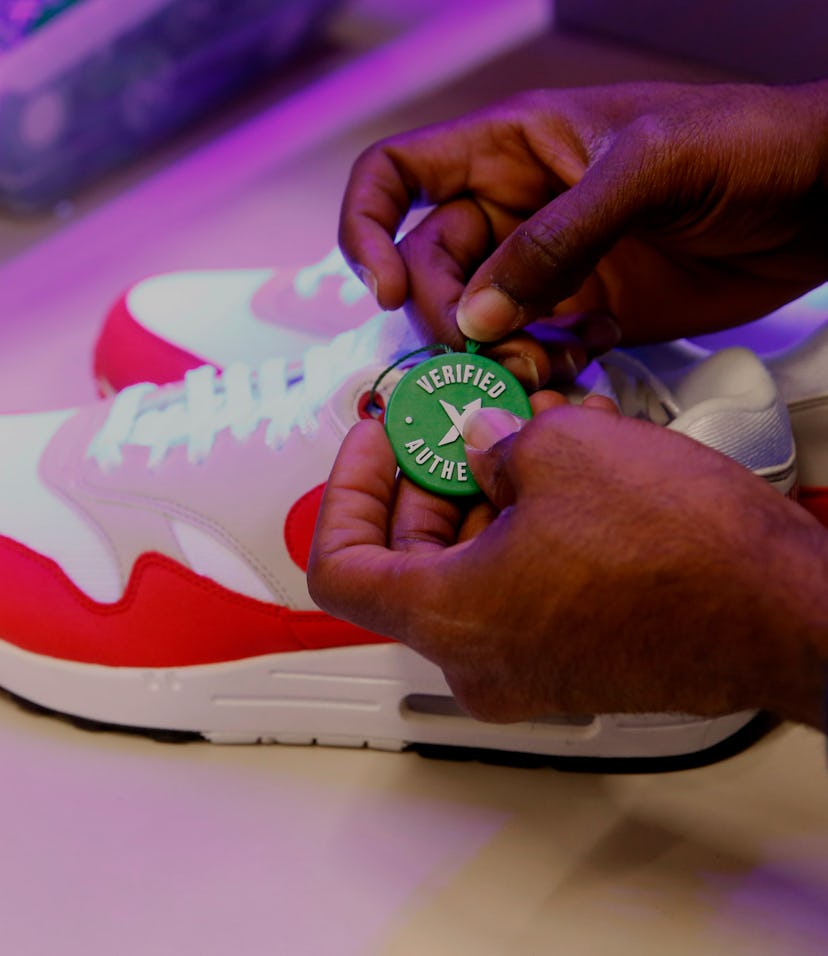Style
Nike accuses StockX of selling fake sneakers as lawsuit escalates
The sportswear giant has requested to add counterfeiting and false advertisement to its suit.

What began as a legal battle over the intellectual property rights of sneaker NFTs has now escalated into claims of counterfeiting.
Nike is seeking to add claims of counterfeiting and false advertisement to its ongoing lawsuit against StockX, according to a report from Bloomberg. The sportswear giant says it purchased four pairs of fake sneakers through the resale platform, which claims items that pass through its authentication process are “100 percent authentic.”
In a statement provided to Input, StockX said: “Nike’s latest filing is not only baseless but also is curious given that their own brand protection team has communicated confidence in our authentication program, and that hundreds of Nike employees – including current senior executives – use StockX to buy and sell products.”
In February, Nike filed a trademark infringement lawsuit against StockX because of the defendant’s sale of “Vault” sneaker NFTs. Each of StockX’s NFTs is tied to a real-life version of the sneaker that the token depicts. Eight of the original nine “Vault” NFTs sold by StockX featured Nike, and in the suit Nike accuses the resale platform of “blatantly freeriding, almost exclusively, on the back of Nike’s famous trademarks and associated goodwill.”
Nike isn’t alone in its complaint — Despite the efforts that StockX takes to ensure that the products it handles are authentic, a crucial assurance when it comes to buying highly sought-after sneakers, lapses in the authentication process aren’t unheard of.
The Instagram page StockX Busta documents customer and seller complaints that include fake sneakers passed as authentic; worn, scuffed, or damaged sneakers that are called brand new; and real sneakers being rejected by authenticators. Similar reports are also common on Trustpilot, as well as the StockX subreddit.
In its court filing Tuesday, Nike said that the four counterfeit sneakers it purchased all came “within a short two-month period on StockX’s platform, all had affixed to them StockX’s ‘Verified Authentic’ hangtag, and all came with a paper receipt from StockX in the shoe box stating that the condition of the shoes is ‘100% Authentic.’”
Don’t forget about the shady NFTs, though — The feeling of being duped isn’t exclusive to StockX’s typical sneaker transactions either. When the company first minted its Vault NFTs, murky terms of service cast doubt on the ultimate value of the NFTs. StockX didn’t make immediately clear how and when NFT holders could exchange their tokens for the real-life sneakers tied to them. StockX also asserted its right to unilaterally take away ownership to redeem an “experiential component,” although updates to the TOS said that wouldn’t happen without the owner’s consent.
Nike pointed out the nebulous terms when first filing its lawsuit, but the case looks to be getting even bigger than we first expected. StockX insists that its NFTs aren’t merely “digital sneakers” and claims fair use applies to its sales. It also characterizes the latest development, according to a statement, as “nothing more than a panicked and desperate attempt to resuscitate its losing legal case against our innovative Vault NFT program that revolutionizes the way that consumers can buy, store, and sell collectibles safely, efficiently, and sustainably.”